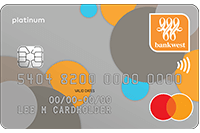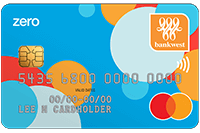What is a no annual fee credit card, and is it a good idea?
Savrr.com is a trading name of SAVRR Australia Pty Ltd. Comparison tables are powered by SAVRR Australia Pty Ltd who do not compare every provider in the market, or all products from the displayed providers. SAVRR Australia Pty Ltd does not give recommendations, advice or credit assistance and may receive a fee if you, apply, click through, or successfully qualify, for a product displayed.
Learn More
With the cost-of-living crisis pinching in more ways than one, Aussies are looking for ways to tighten the budget across the board, including cutting back on unnecessary fees and additional charges.
For those who use a credit card, the no annual fee credit card might seem like a tempting option.
What is a no annual fee credit card in Australia?
“A no annual fee credit card is exactly as it says: it charges no extra [annual] fees for having the card,” explains Tania Tonkin, a financial adviser with 25 years’ experience, and director at Adelaide accounting firm DMCA Advisory.
She adds that while this can be a good option for some people, it is very important to read the finer detail, because sometimes the ‘no annual fee’ is a promotion for a defined period of time, such as the first 12 months.
“It is also important to understand that you still need to pay the interest on your debts each month, and those interest rates could be higher than other cards in some cases,” she continues.
“Some zero annual fee credit cards offer special reward programs like frequent flyer points, or points that can be used to purchase products or gift vouchers.”
What credit cards have no annual fee in Australia?
A number of credit products boast no annual fees in Australia, however as Ms Tonkin says - reading the fine print is key when comparing them.
The best way to find a product that might be right for you is to decide on the features that would work best for your financial circumstances. For example, is a rewards program going to be beneficial, or are you looking for something just for occasional expenses? Are you planning to repay the balance in full each month, or are you looking for balance transfer options and interest-free periods?
Once you’ve decided which features you’re looking for, it’s a good idea to compare a range of options. You can start with some no annual fee cards below.

Credit Union SA - Education Community Credit Card
Purchase Rate
Interest Free Period
Balance Transfer
Annual Fee

Credit Union SA - Workplace Benefits Credit Card
Purchase Rate
Interest Free Period
Balance Transfer
Annual Fee

Bankwest - Zero Platinum Mastercard
Purchase Rate
Interest Free Period
Balance Transfer
3% BT fee applies.
Annual Fee

Bankwest - Zero Classic Mastercard
Purchase Rate
Interest Free Period
Balance Transfer
3% BT fee applies.
Annual Fee

Virgin Money Australia - No Annual Fee Credit Card
Purchase Rate
Interest Free Period
Annual Fee
What are some of the benefits and risks of a no annual fee credit card?
As with all credit products – particularly credit cards – the risk potential is generally down to how you use them, and how well you understand the ramifications of doing so.
“The biggest risk is clocking up the dollars in potentially higher interest rates,” says Ms Tonkin.

“Having a credit card means a higher interest rate on debt, so you need to compare the interest rates on these cards to see if they’re competitive. Sometimes people are also attracted by the rewards programs attached to the cards, and so take out a second card, which can just lead to more debt if they don’t manage it carefully.”
In terms of the benefits, particularly for people looking to cut down on unnecessary admin costs, reducing your annual fee to zero is an attractive offering.
“The benefits are that you can keep costs down without an annual fee just for having the card,” says Tonkin.
“This can be good for people who don’t use it a lot and want the rewards, or have the means to pay off the outstanding balance each month.”
She adds that rewards schemes are often an added incentive.
“It is also popular if people want to access the reward bonus points that these cards can offer. For example, they sometimes pay more frequent flyer points per dollar spent. Some of these cards also come with travel insurance which can be helpful to people if they don’t have that with other credit cards.”
How can you minimise risk with a no annual fee credit card?
It was Albert Einstein who said, “Compound interest is the eighth wonder of the world. He who understands it, earns it; he who doesn't, pays it”. When it comes to credit cards of all descriptions, the underlying risk is, of course, that we let the compounding interest get the better of us.
Ms Tonkin recommends that, to minimise this risk, there are a few actions consumers should take.

“I advise everyone to read the fine print carefully,” she says. “While some cards might have a lifetime of no annual fees, the interest rate might be much higher on your purchases. You need to examine whether you really need the card, and why. If you’re planning a holiday, for example and want to use it to acquire more points in a year so you don’t have to pay cash for flights, be careful that you are only using one credit card and/or spending carefully.”
Ms Tonkin also warns of the perils of owning multiple credit cards.
“Having multiple cards can see debt accumulating quickly, especially as people often now use credit cards attached to their accounts for basics like food shopping and essentials, as well as extra spending. You need to watch your monthly outgoings carefully, or you could get an unpleasant surprise. Building large amounts of carry-forward debt can turn into a financial nightmare for individuals and families. If you can’t regularly pay off your existing credit cards, or if you think getting a credit card would be a temptation to spend more, just don’t get one.”
How to find the best no annual fee credit card in Australia
The ‘best’ no annual fee credit card is a subjective concept, and depends on a range of factors, including an individual’s own circumstances and needs. As with all financial and credit products, it’s a good idea to speak with a qualified adviser about options available to you, and whether a credit card is a good financial decision for you. Once you know the features you’re looking for, and the type of card you’re looking for, comparing available products to find something that suits your needs can be an excellent starting point.